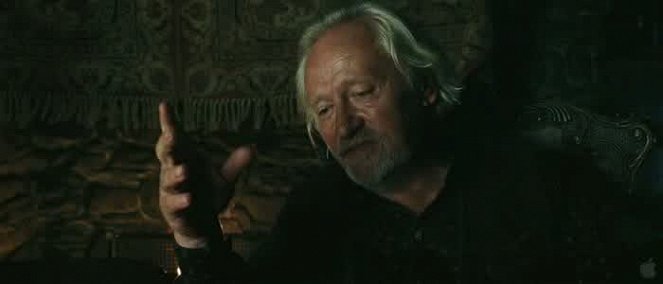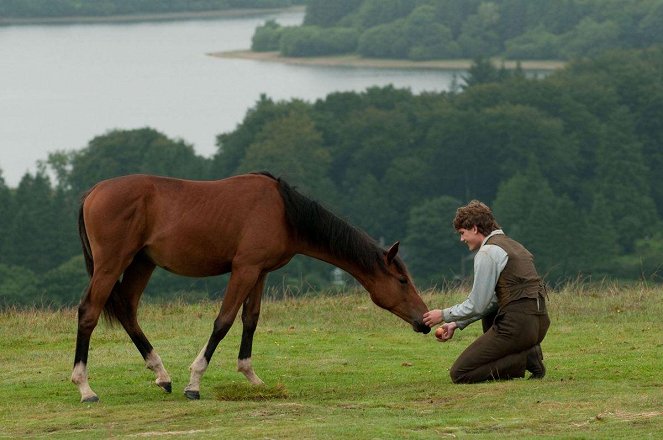Directed by:
Steven SpielbergCinematography:
Janusz KaminskiComposer:
John WilliamsCast:
Jeremy Irvine, David Thewlis, Emily Watson, Tom Hiddleston, David Kross, Benedict Cumberbatch, Peter Mullan, Niels Arestrup, Patrick Kennedy, Nicolas Bro (more)VOD (3)
Plots(1)
Follows a young man named Albert and his horse, Joey, and how their bond is broken when Joey is sold to the cavalry and sent to the trenches of World War One. Despite being too young to enlist, Albert heads to France to save his friend. (official distributor synopsis)
Videos (54)
Reviews (12)
Spielberg did what Cameron did years ago when he was filming Titanic, War Horse is not a groundbreaking in terms of plot, it’s a rather classic story, but Steven indirectly winks at us and suggests that this is how the true blockbuster films of the silver screen used to be made, with real emotions that are not often seen nowadays. The film aesthetics, the camera work, the lighting, etc. are also not standard that I would call them old-school. Therefore, it is a tribute to the old school. Whether it works in the end, everyone has to decide for themselves. For seasoned film enthusiasts, fans of the work of an eternal child, and the older population, War Horse will be a nostalgic escape from everyday reality. For the rest, it will probably just be a tedious bore, which half will consider as pathetic. Spielberg filmed what he wanted and did it very well. The scene with the horse against barbed wire is gripping.
()
War Horse follows in the footsteps of The Red Baron and the Flyboys. A wave of renewed interest in WW1 would be a great thing, it would just have to be based on films that aren't such failures. The memory of Düsseldorf will be more eternal and colorful than a sunset in all shades of orange.
()
The depiction of an animal’s suffering at the hands of a person marks War Horse as a cousin of Bresson’s Balthazar, while the relay narrative structure is reminiscent of Jancsó’s The Red and the White. I realise that these are wild comparisons that I should tone down in time, but I still consider Spielberg’s latest film to be not only a return to the narrative tradition of the classic Hollywood of Victor Fleming and John Ford (references to westerns can be seen in the development of the theme of tradition vs. modernity and the cavalry charge against the German camp, reminiscent of Indian attacks), but (paradoxically) also a remarkable narrative experiment. The plot seems simple at first and I imagined the ease with which the screenwriter “sold” it to the producer (there’s a horse, there’s a boy, there’s a war), but opening the gate dividing the small world of family conflicts from the big world of war gives the story an unexpected boost. The supposed protagonist is sidelined and the film atypically takes on the horse’s point of view, for which we are gently prepared in advance by the emphasis placed on the other animals. The father-son drama in the background of the class conflict transforms into a patriotic drama, which later turns into a war story about friendship, and there is even a comedic episode to lighten the mood. All of the outwardly stylistically incongruous events are linked by the two words contained in the title: war and horse. However, the film doesn’t show war with the hyperrealism of Saving Private Ryan, but rather presents to us an admittedly distorted, almost childishly naïve version of war (the kitschy image of the sky like that seen in old Technicolor melodramas). We are given advance warning of death through meaningful shots and Spielberg softens the painful scenes (the execution) with masterful visual and sound shortcuts (though these are somewhat obvious in his directing), and the battle scenes are filmed predominantly in long shots rather than in close-ups, which would have revealed more. The idea of war is not subjected to direct criticism (as perhaps in no other American film) but is rather shown as an inevitability. The bloody global conflict serves to push the touching narrative to humanistic extremes (rescuing the horse would have resulted in two absurd sketches). Spielberg openly uses the inhumanity of war to reveal the humanity of the heroes. War Horse basically says, “life is a struggle, but you will win it”. That may seem ridiculous today, when even a lot of Hollywood films slowly vacillate and doubt, but Spielberg is still able to present it with a certain magnificence that in the delayed conclusion will give you a feeling of being victorious (as usual, it will take a while to re-establish your equilibrium after the preceding shocks). If you let it. 75%
()
A film about love, goodness and horses, in which the Great War also looks many times more pathetic and moralistic than in all of the anti-war pamphlets of the 1920s and 1930s. Paradoxically, this is not a problem at all - the main drawback of this captivating spectacle is Spielberg's absolute fondness for the surface. Everything inner and psychological disappears from the shots - everything is taken over by a rich visual arrangement. People and horses are explicitly props in the creator's professorial exhibition. Moments of emotion always and again come across the same thing - it's not the human (horse) story that impresses us, it's rather the respectable audiovisual construction, under which (unlike Steven's famous films) there is nothing at all, just a genre vacuum. This is simply not enough for a fairy tale, which War Horse is more than anything else.
()
A nostalgic look back to the heartiest, most melodramatic stage of cinematography. Film poetry for people who remember those times, maybe the last of its kind. Had it been twenty minutes shorter, it would have been one of Steven Spielberg’s best movies. That it’s one of his most personal films can be felt from every scene.
()



Ads